
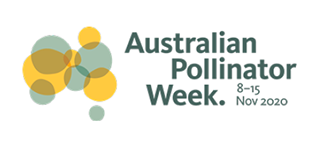
It’s a serious question raised in a slightly naughty way in ‘Pollination Week’, the Australian Pollinator Week theme song released today. “I couldn’t help smiling as I began to contemplate it” said Fiona Chambers, CEO of the Wheen Bee Foundation, “and that’s what makes this theme song so great; it does make you think about […] Read more
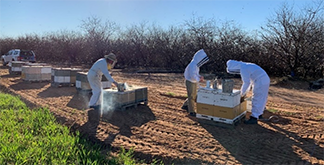
The 2020 almond pollination season is not far away. The Agriculture Victoria apiary team reminds beekeepers planning to provide pollination services that it is vital to adequately prepare hives so that they are healthy and strong to work in the orchards. Australian Honey Bee Industry Biosecurity Code of Practice (‘the Code’) Almond pollination season provides […] Read more

Beekeepers who plan to attend pollinations are urged to complete a four point checklist. Read more
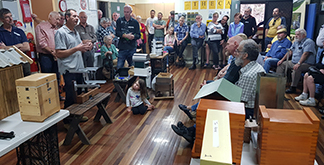
Native bee enthusiasts and professionals alike are in a buzz of excitement with the formation their own member organisation, the Australian Native Bee Association. President Dr Tim Heard said: “The association will harness and spread the enthusiasm for native bees by many groups including naturalists, beekeepers, farmers and backyarders.” The Australian Native Bee Association aims […] Read more
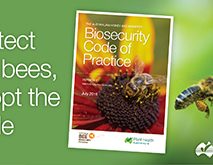
Beekeepers nationally, commercial and hobby, are being urged to adopt the Australian Honey Bee Industry Biosecurity Code of Practice to keep their bees healthy and to safeguard honey bee and pollination dependent industries. Honey production is worth more than $100 million annually, along with sales of beeswax, queen and packaged bees. This is dwarfed by […] Read more

Agriculture Victoria is urging anyone with unregistered or feral bee hives within a surveillance zone around the Port of Melbourne to contact them. The surveillance zone was established following a detection of varroa mite at the Port last week. Acting Chief Plant Health Officer Nigel Ainsworth said Agriculture Victoria is currently undertaking precautionary surveillance of […] Read more
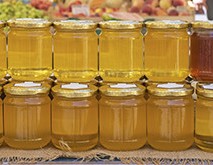
A research project screening Western Australian honey for bioactivity traits that could support health products is uncovering some surprising results. As part of an AgriFutures™ Honey Bee and Pollination Program supported project, researchers from the University of Western Australia, together with the Cooperative Research Centre for Honey Bee Products, are analysing honeys that are native […] Read more
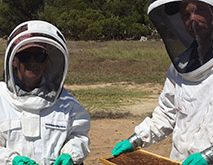
The South Australian honeybee industry is set to follow the latest in biosecurity best practice with changes to the Livestock Regulations 2013 to take effect this month (April). The amendments which come into effect on Thursday 19 April align with the Australian Honey Bee Industry Biosecurity Code of Practice, which has been endorsed nationally and […] Read more
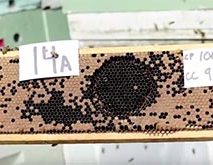
In the latest best practice video developed by the Honey Bee & Pollination Program, one of Australia’s most respected apiarists has encouraged honey producers to adopt rapid hygienic behavior testing in an effort to limit pest and disease incursions. In the fifth episode in the series, Lindsay Bourke from Australian Honey Products in Launceston, Tasmania, […] Read more
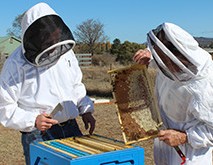
Biosecurity Queensland is asking Townsville residents to keep reporting unusual bees and unmanaged bee colonies. Public assistance is an essential part of the hunt for varroa mite, which was first detected in an Asian honey bee nest at the Port of Townsville in June 2016. “We have had excellent support from local beekeepers and the […] Read more
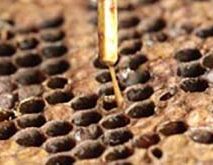
Beekeepers have been urged to look out for discoloured brood and dead larvae, both symptoms of NSW’s most serious brood disease of honey bees, American foulbrood (AFB). The NSW Department of Primary Industries (DPI) today declared October as AFB Awareness Month – a month-long campaign dedicated to educating beekeepers across the state about the fatal and […] Read more
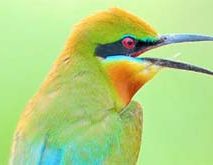
The National Varroa Mite Eradication Program (NVMEP) is seeking public assistance to locate roosts of rainbow bee-eaters in the Townsville area. The program uses a variety of surveillance methods to detect Asian honey bees, one of which relies on the rainbow bee-eater birds, which occur throughout Townsville. As all beekeepers know, bee-eaters love to eat […] Read more
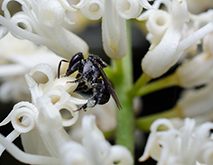
Improving macadamia tree yields by more than 50 per cent could be achieved by alternating varieties in rows and increasing pollinators, new research suggests. For the study – funded by Hort Innovation and Plant & Food Research and the Australian Macadamia Society (AMS) – researchers conducted a trial in a Bundaberg orchard which investigated pollination […] Read more
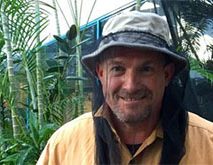
The NSW bee industry will be further protected to minimise the impact of pests and diseases with the appointment of a new Bee Biosecurity Officer based at the Department of Primary Industries (DPI) Tocal College at Paterson. DPI’s Manager of Plant Biosecurity Prevention and Preparedness, Dr Chris Anderson said the new appointment of Rod Bourke […] Read more
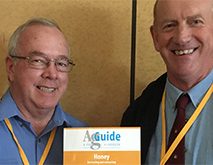
Beekeepers can get practical information on harvesting and extracting honey with a new publication, produced by NSW Department of Primary Industries (DPI) Tocal College, launched at the NSW Apiarists’ Association Conference. DPI Technical Specialist Honey Bees and co-author Dr Doug Somerville said the guide, Honey Harvesting and Extracting, informs beekeepers of the best management practices […] Read more

The nation’s busiest pollinators have received a boost after the official launch a multi-faceted effort to maintain the health of Australia’s bees along with the country’s $1.8 billion pollination-reliant horticulture and grain industries. Horticulture Innovation Australia, the Australian Honey Bee Industry Council and Grain Producers Australia have joined forces to deliver a $3M program that […] Read more

A new online training course was launched by the Australian Honey Bee Industry Council (AHBIC) and Plant Health Australia this week, to make it easy for beekeepers to find out how to care for honey bees in accordance with the new Australian Honey Bee Industry Biosecurity Code of Practice. The Biosecurity for Beekeepers course explains […] Read more
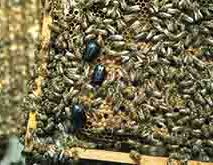
In the wake of the first ever Australian review of the risk posed to the country’s pollination and agricultural industries by large African hive beetle (LAHB), the pest is now endorsed as a High Priority Pest by all state, territory and federal governments. As part of a research project funded by the Honey Bee and […] Read more
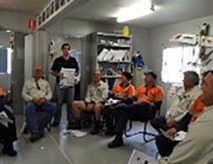
Bees on the move With the recent rainfall in North Queensland, there has been a notable increase in bee activity and swarms. The National Varroa Mite Eradication Progam is calling on beekeepers and members of the public in the Townsville area to report new bee swarms and feral nests so that they can be examined […] Read more
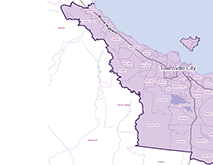
Biosecurity Queensland is conducting surveillance and control activities to detect and destroy Asian honey bees and eradicate varroa mites. To stop the spread of varroa mites, a Prevention and Control Program is now in place for the Townsville City Council local government area. The Prevention and Control Program imposes obligations on an occupier of a […] Read more